Interview: DIAVOLO's Jacques Heim Safely Creating THIS IS ME With Vets
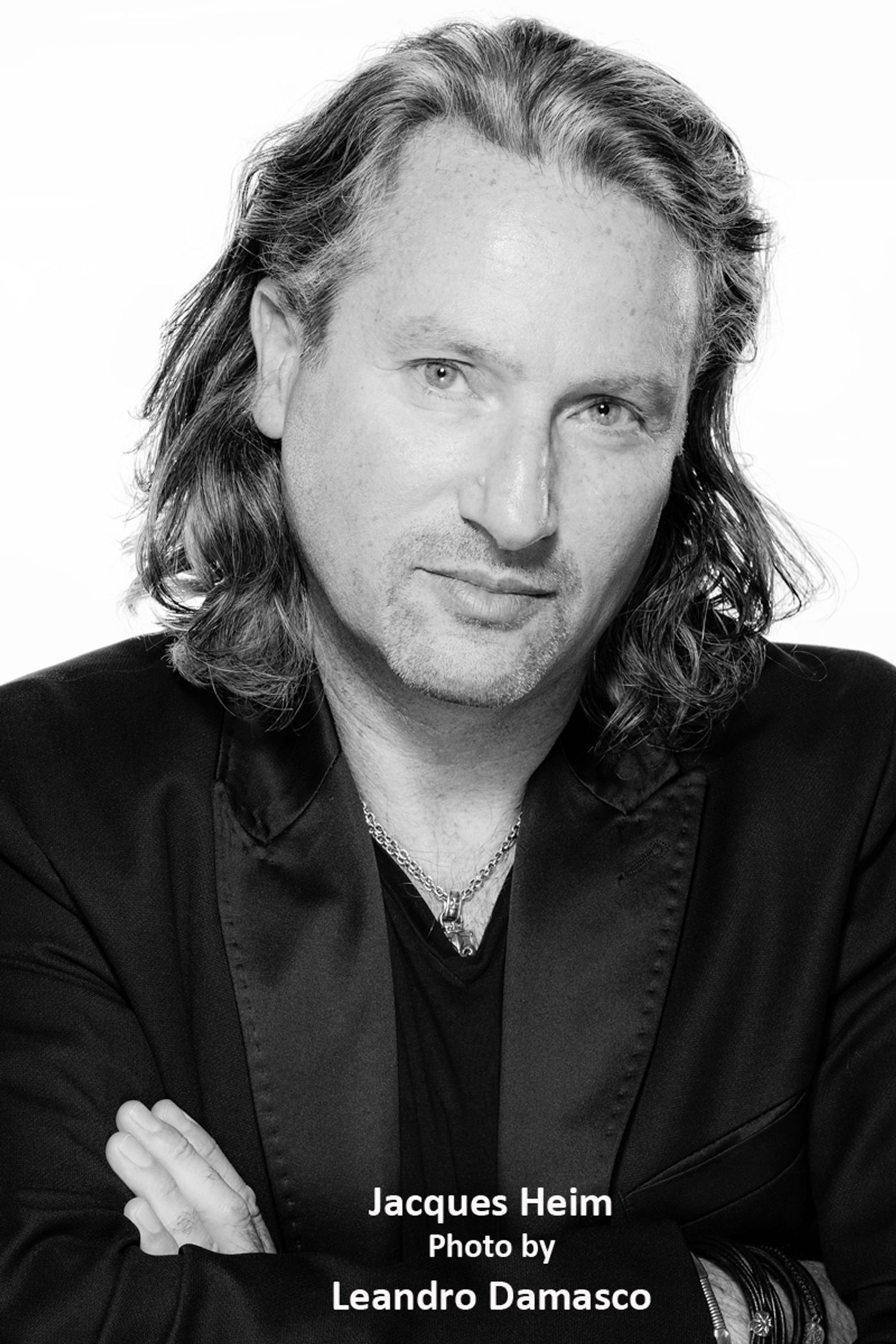
DIAVOLO/Architecture in Motion's The Veteran Project will premiere its THIS IS ME: LETTERS FROM THE FRONT LINES on The Soraya Facebook page Friday July 31 at 4p PST. Returning to The Soraya for their fourth engagement, DIAVOLO's latest movement piece deals with our current pandemic isolation from the first responders' perspectives.
DIAVOLO/Architecture in Motion's founder and artistic director Jacques Heim, who directed and choreographed THIS IS ME: LETTERS FROM THE FRONT LINES, shared some behind-the-scenes of THIS IS ME and background of the performing company he founded in 1992.
Thank you for taking the time for this interview, Jacques!
So what city are you staying safe at home in?
I am trying to stay safe in Los Angeles. It would be safer if everyone would decide to wear a mask. Coming from being born in Paris, France, when I ask my friends in Paris how the situation is there, they all tell me that it has been mandatory for the entire country to wear a mask or there would be a fine. Because of it, there are now less COVID-19 cases per capita. How come here, in the US, we cannot be disciplined to do the same?
What innovative ways are you keeping yourself sane and healthy?
For the first few months of the pandemic, I have to say that it was extremely challenging to figure out how we would be dealing with our immediate future. When we were doing regular weekly zooms with my dancers and I saw everyone being depressed, I had to find a new way for my company to reinvent how we would move forward in our immediate future.
Knowing that there will be no live performances for the next year to two years, until we really find a vaccine for audiences to be comfortable to come inside a theater, we are forced to reinvent ways to create new work. The film medium was always an art form that I was fascinated with, because I believe the work of DIAVOLO is very cinematic. With the DIAVOLO team, we came up with many different film projects that not only our dancers would be involved in, but projects that at this time, instead of just creating pieces for the sake of creating, we would construct meaningful projects with social impact. Especially now, during this time where America is facing so many different issues, we thought it was important for us as a company and as artists to create dance films that focus on these matters.
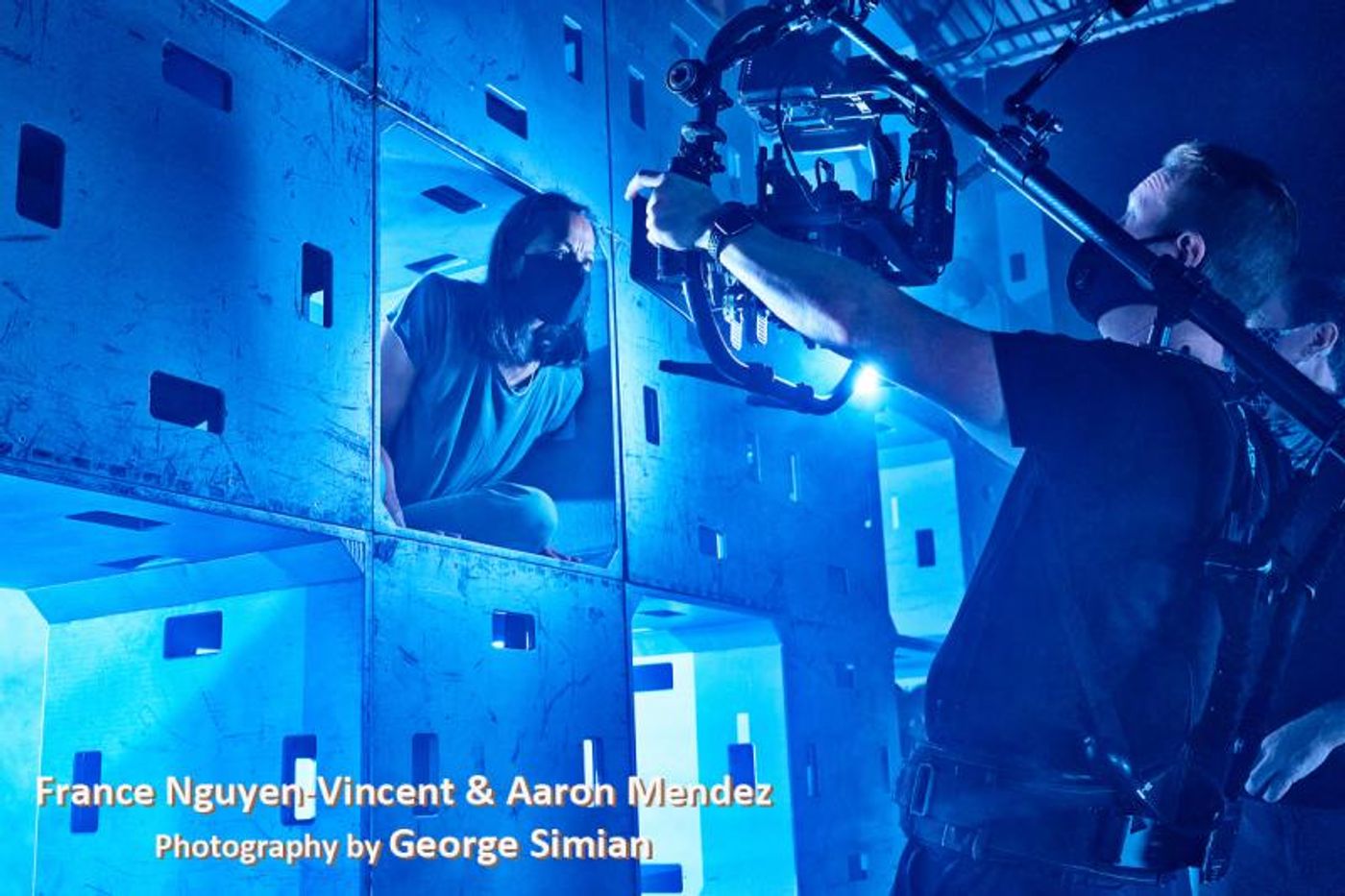 What was your process putting together this filmed movement piece?
What was your process putting together this filmed movement piece?
In the film THIS IS ME: LETTERS FROM THE FRONT LINES, we asked eight of our dancers to participate, four Military Veterans, and three First Responders. In addition, we follow one civilian who is the through line of our film, France Nguyen Vincent: a woman, a wife, a mother, and former company member of Nederlands Dans Theater.
This film is about celebrating Warriors. We fight wars with guns, tanks, missiles, etc., and now we fight wars against this invisible enemy, with medical personnel and medicine. The film THIS IS ME is about celebrating our seven Warriors [Military Veterans and First Responders].
I wanted to shift the perspective of what could be perceived, by putting our Military Veterans and First Responders in pedestrian attire because, in a way, they are just regular amazing humans, like you and I. We put France and our dancers, who represent civilians, in Military-inspired clothing to represent that actually we, as civilians, are Warriors at this time. We are civilians who lost the lives of our family members, lovers, friends, we lost our jobs, and lost our way of life as we know it. It feels like we are, in a way, Warriors on the front lines, trying to figure out how to get our life back.
In order to create this film, we knew that we could not do it in a zoom setting. We knew we had to film in our dance studio. Over the course of a month, we met over zoom several times a week, not only to talk about the creative part of the film, but to strategize how we would be rehearsing and shooting in a healthy, socially distant way.
The first thing we decided was to put our dancers in full quarantine weeks in advance, living together just like families around the world are currently living, in order for them to feel more comfortable moving together, closer and freer.
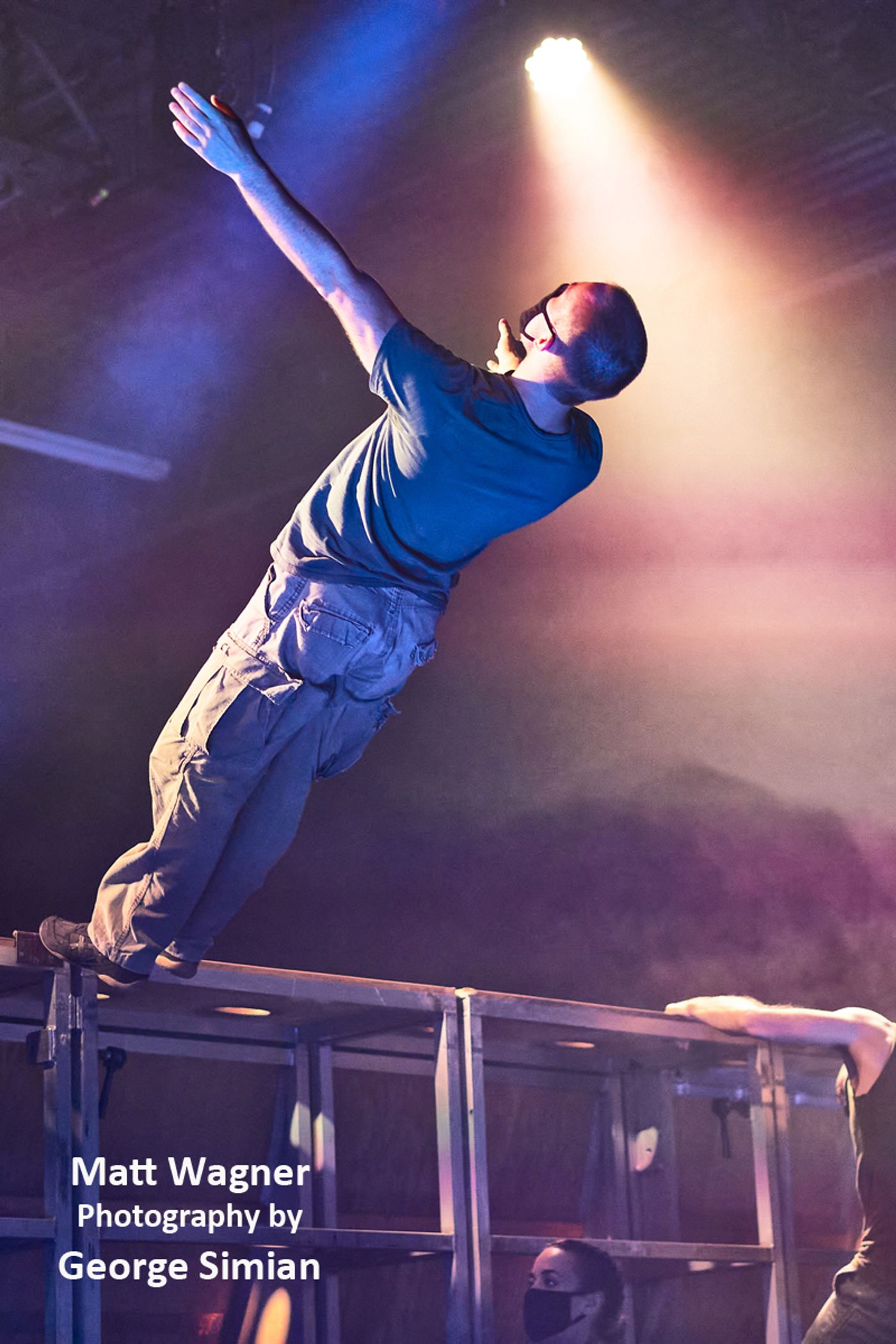 We had to plan ahead every move we were going to make, strategize how we were going to clean and disinfect not only the structures but the entire studio. We scheduled everyone accordingly, so not all of us were at the studio at the same time.
We had to plan ahead every move we were going to make, strategize how we were going to clean and disinfect not only the structures but the entire studio. We scheduled everyone accordingly, so not all of us were at the studio at the same time.
We took participants' temperature every day upon arrival and monitored their behavior throughout the day. Also, by working with First Responders, they provided guidance that helped us navigate the best way to keep everyone as safe as possible. We cleaned and disinfected more than we rehearsed and shot! The masks were not only essential, but became part of the theme of the film: not being able to breathe easily, not feeling free.
You founded DIAVOLO in 1992. What sparked the creation of the Veterans Project in 2016 for yourself and Jennifer Cheng?
The mission of DIAVOLO has always been creation and education. Fifty percent of what we do is to create new pieces for the proscenium stage, and fifty percent is to do educational programs and community engagement. The last five years creating educational and community engagement programs has become the forefront of the core work of DIAVOLO. The reason we decided to work with the Veteran community was because we realized there is a great parallel between the Military and the work of DIAVOLO.
I realized that DIAVOLO is not like any other dance company out there, but more like a training/educational program. The reason we create pieces is because it is the platform for the company to train our dancers and use it to really push them beyond their own limits.
I am not a traditional artistic director/choreographer, but more like a football coach, a drill sergeant, a surgeon. I push my dancers beyond their own physical, mental, and emotional limits so that they can discover what they're made of, and they can slowly realize that they can do anything if they put their mind to it.
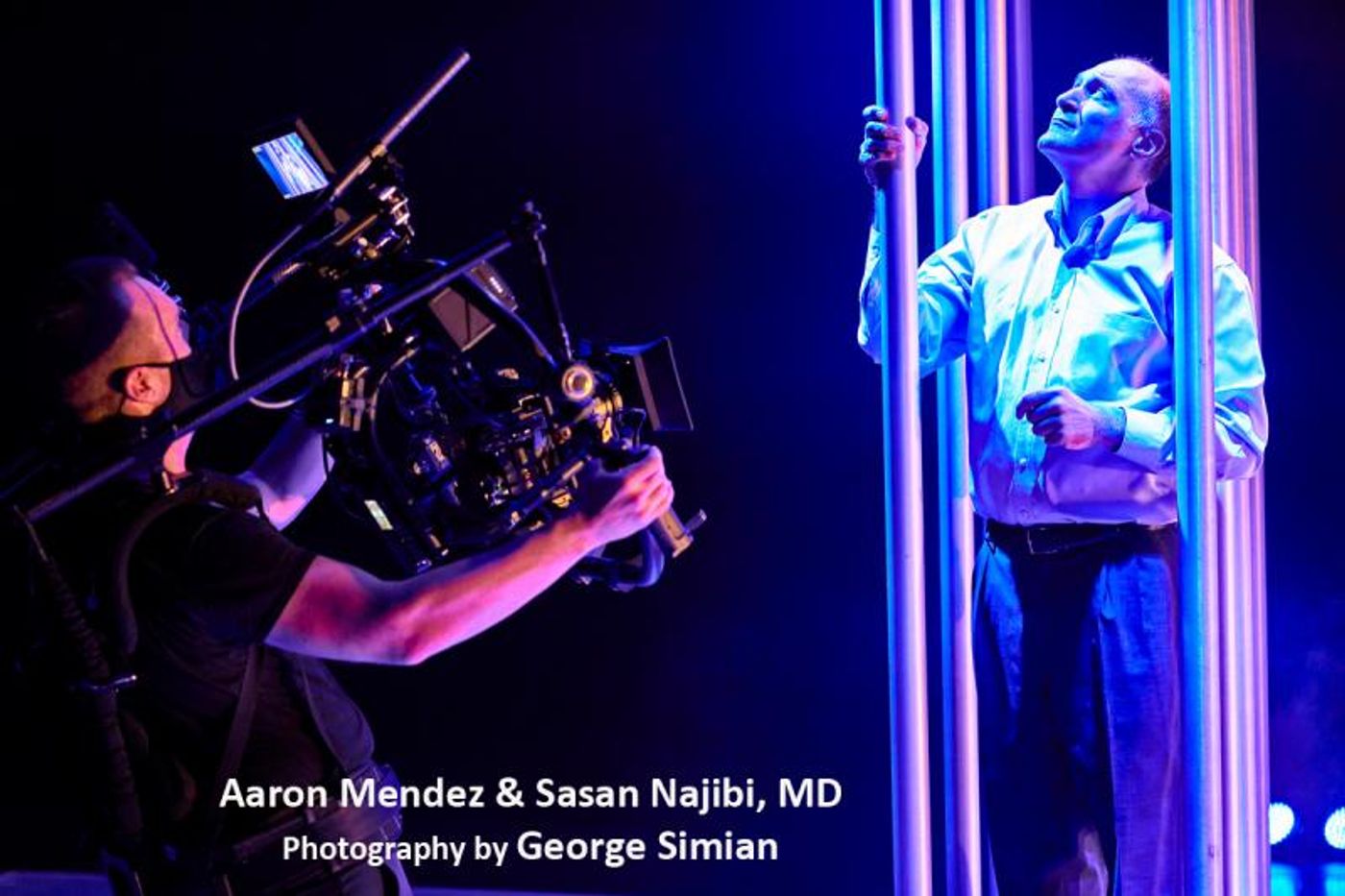 The tools that are provided to them through the work of DIAVOLO helps them to understand their strengths and weaknesses, helping them to comprehend how life works, what they need to do to conquer their goals, how to do it, and the kind of behavior they need to have.
The tools that are provided to them through the work of DIAVOLO helps them to understand their strengths and weaknesses, helping them to comprehend how life works, what they need to do to conquer their goals, how to do it, and the kind of behavior they need to have.
What DIAVOLO gives to Veterans is a restoration program working on their physical, mental, and emotional strengths. When Veterans come back from their service, they feel a void. DIAVOLO helps Veterans because our goal is to help human beings rediscover and restore who they are, the same way with our dancers.
At the end of the day, my sole mission of having DIAVOLO is to help human beings excel, to help them succeed and conquer their goals and to feel like Warriors, like they can conquer everything, like they can climb Mt. Everest (of course, as a metaphor).
I saw your promo clip of A LONG JOURNEY'S HOME on the DIAVOLO Veterans Project's website. Beautiful piece! Veterans are typically non-dancers, but those in the clip were so in sync and fluid with each other. As a choreographer of Cirque du Soleil and many, many other productions; do you require a different mindset to work with non-dancers than when working with trained dancers or acrobats?
I have the same mindset working with dancers and non-dancers because at the end of the day, they are both humans. The difference is that a dancer will be able to execute a higher level of movement, but a non-dancer can show a more authentic way of expressive movement. Both can be as beautiful and powerful as the other.
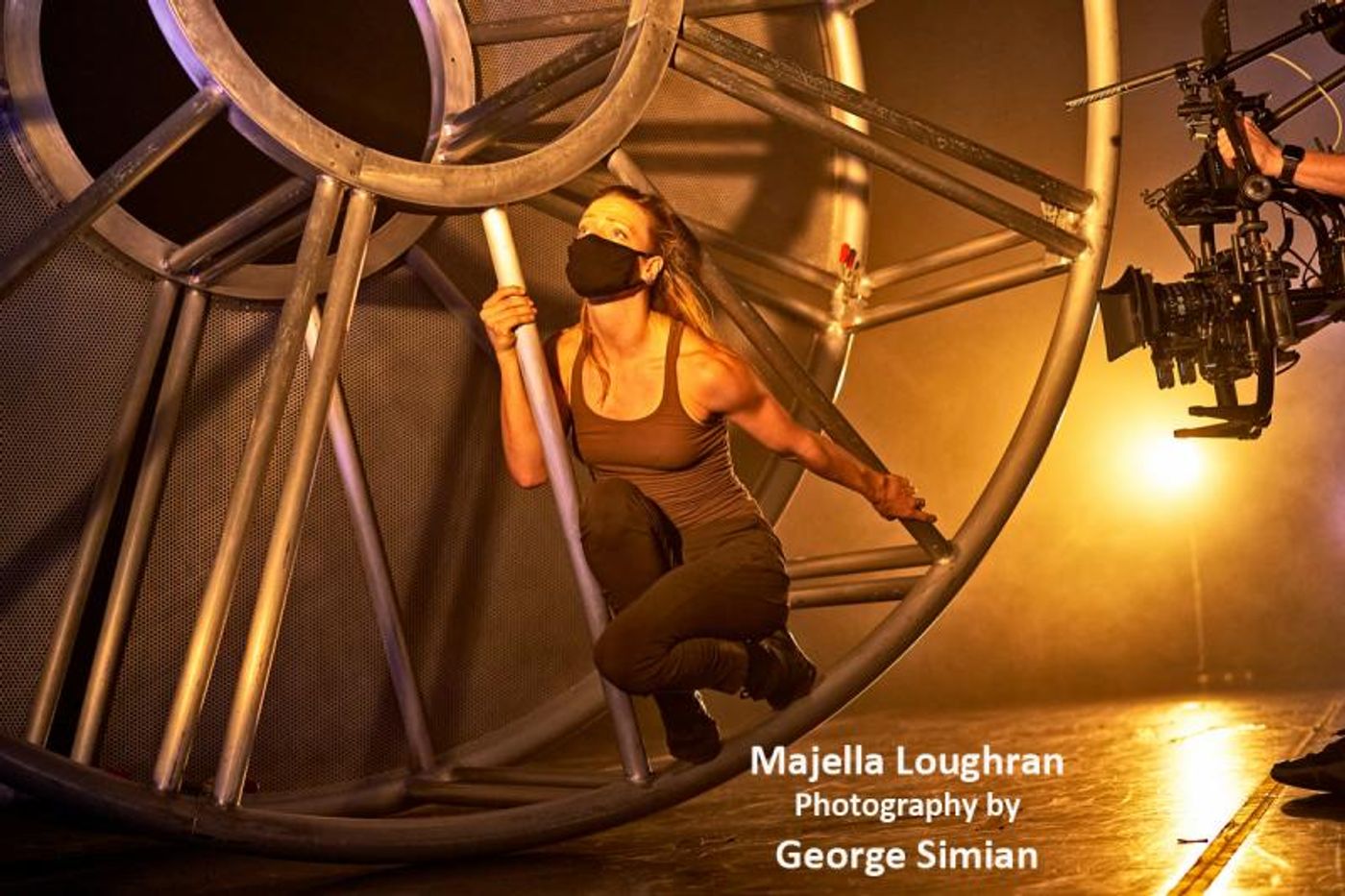 My main goal, regardless if you are trained or not, is to bring the best out of you, but the journey to get there is physically, mentally, and emotionally painful. My success is not that the outcome of a piece is great, but to see and experience the unbelievable growth of the performer. You feel like you can conquer the world because you were pushed with care in so many different ways, and learn so much about yourself that you are ready to move forward i.e. in your personal life and your professional life.
My main goal, regardless if you are trained or not, is to bring the best out of you, but the journey to get there is physically, mentally, and emotionally painful. My success is not that the outcome of a piece is great, but to see and experience the unbelievable growth of the performer. You feel like you can conquer the world because you were pushed with care in so many different ways, and learn so much about yourself that you are ready to move forward i.e. in your personal life and your professional life.
You first began with four-month intensive movement training programs for interested vets. What have you, and will you be offering when we're able to physically be back in classroom situations?
As soon as we're able to be back together safely, we absolutely will start our Veterans workshops again. Before the pandemic we had monthly Veteran workshops, and twice a year held long intense workshops. We are currently doing weekly movement classes for Veterans on zoom. We're about to develop a more thorough and articulately designed movement workshop for Veterans on zoom. I realize that sometimes a zoom class can be challenging. I need to find an interesting way to create a more meaningful form of a boot camp class for Veterans and civilians. Stay tuned, we'll let you know soon.
What aspect of the Veterans Project has given you the most satisfaction?
When you can help humans, help Veterans to restore their own physical, emotional, and mental strengths and give them physical and mental tools to utilize in their everyday life and see the growth that they're making; then you know you're accomplishing something important. That is the most satisfying of all. Isn't it what life is all about...?
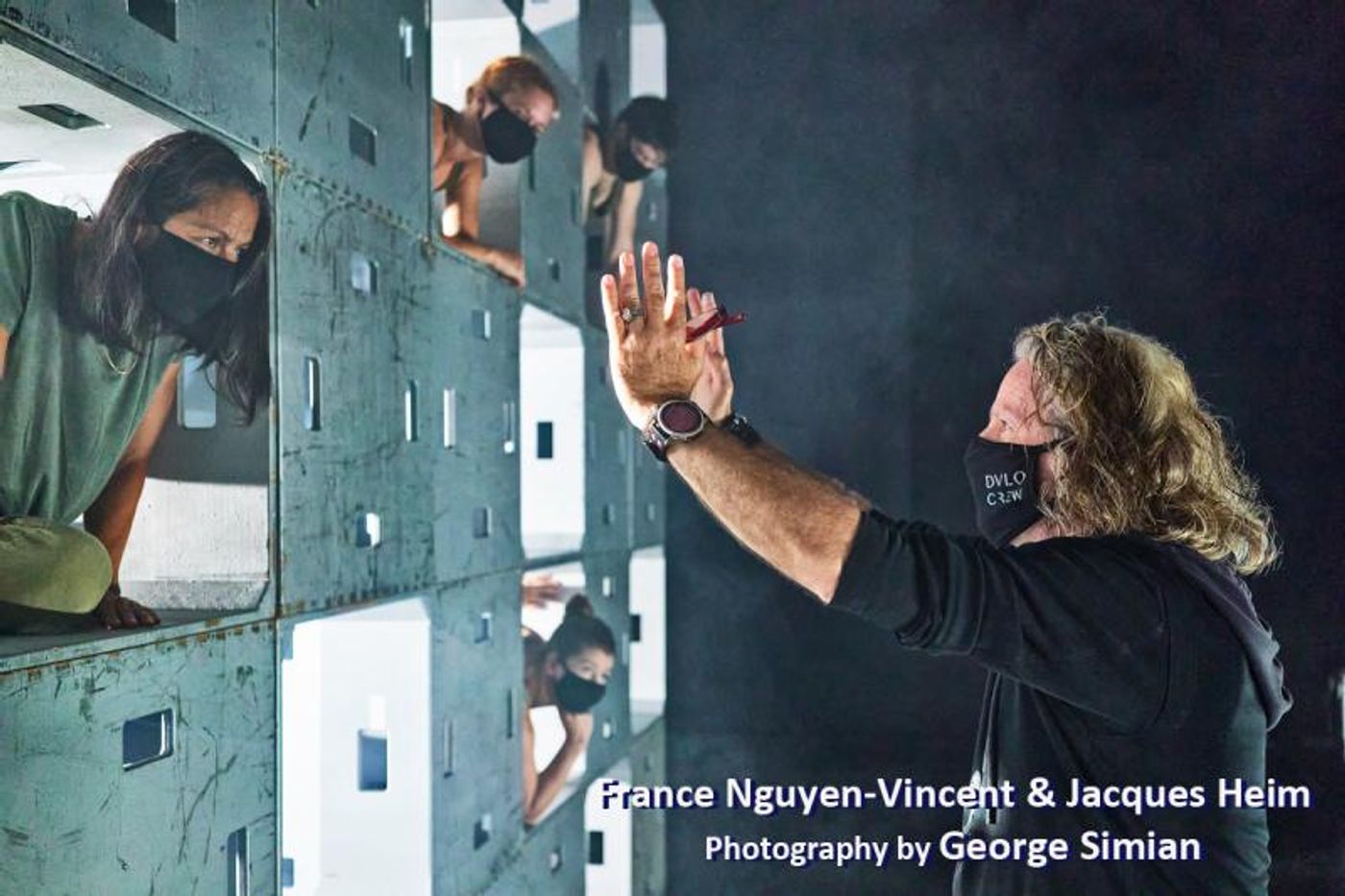 DIAVOLO has a company of recurring performers. Does the Veterans Project?
DIAVOLO has a company of recurring performers. Does the Veterans Project?
Over the last four years and counting, we have created a large database of Veterans who have taken our workshops and classes, not only in Los Angeles, but nationally. As challenging as it can be, we try to keep in touch with most of them, and we do see a lot of our recurring Veterans coming back to take many more workshops. As we realize that a lot of our recurring Veterans come back, we wish that we had all the time and money in the world so we could have a permanent space for Veterans to come back any time.
Although you label yourself as an "architect of motion," you earned a MFA in choreography from the California Institute for the Arts. What got you first interested in dance, or motion? Tell us about your early street performing days?
Growing up in France, I was kicked out of six different schools. Not only was I completely bored of the French school system, but I also had a learning disability which I did not realize at the time. I was escaping many classes as much as I could to go meet my friends. Instead of stealing and doing drugs, we decided to start a street theatre group. We performed not only in the streets, but on top of cars, inside buildings, improvising in restaurants, and at times, getting arrested by the police. We were the great rebels of Paris. I discovered later that by having this street theatre group, I learned a lot about movement without understanding what choreography was. I learned a lot about relating to urban environments without understanding architecture. I was telling my friends what to do without understanding what an Artistic Director was. My years in Paris having my street theatre group was truly the roots of DIAVOLO.
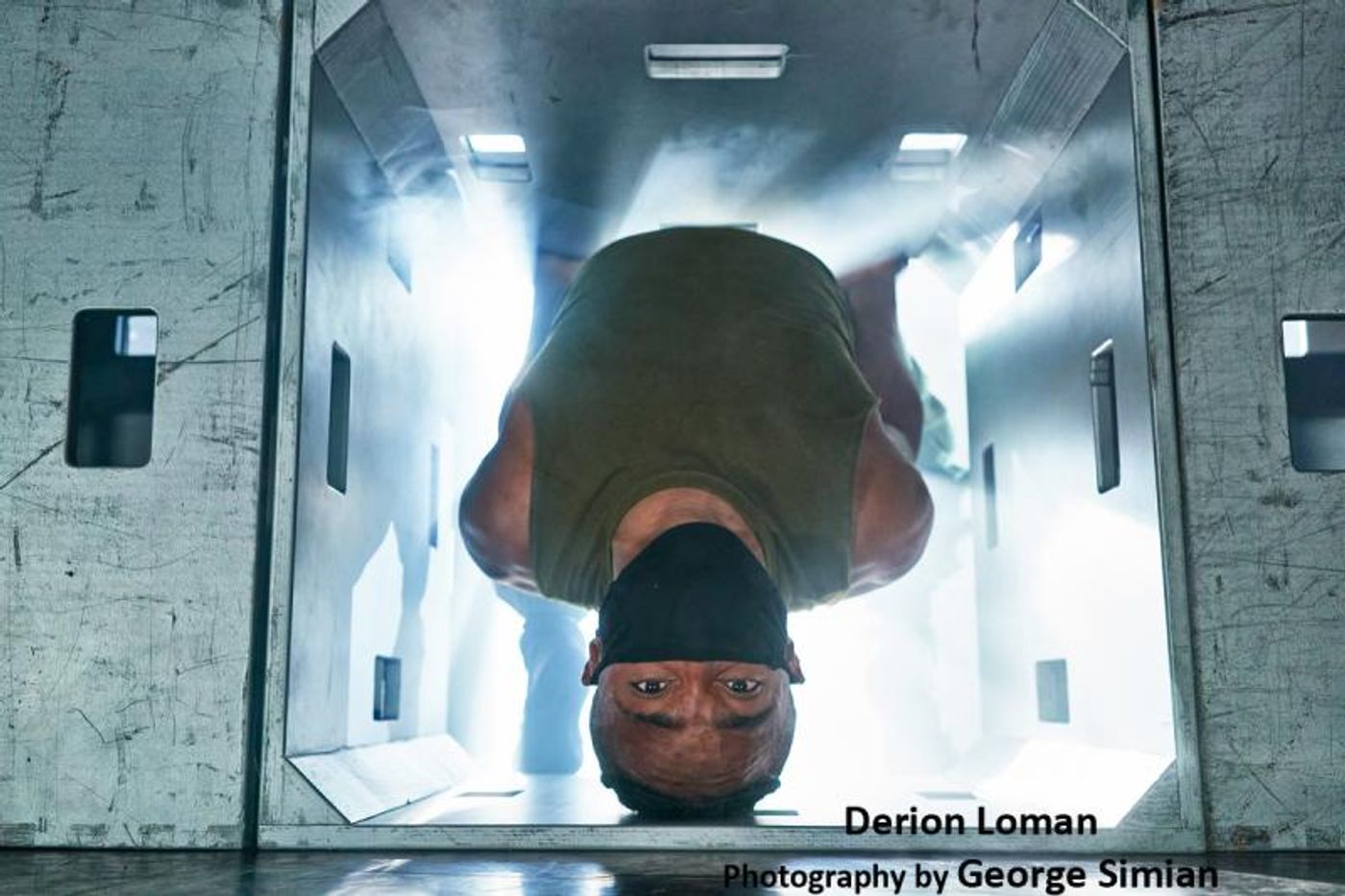 My parents decided that it was time for me to leave France. I had family in the United States and they decided that it would be a good idea to go to America, The Land of Opportunity. In 1983, I ended up going to a small college in Vermont, Middlebury College, and studying in the theatre department. At that time, I wanted to become an actor. However, my English was so bad when acting in a Tennessee Williams or Shakespeare play, I sounded like I was speaking complete gibberish for the audience. No one could understand me. You should have seen the first ten rows of the audience looking at one another asking themselves, "What the heck is he saying!" Luckily, I had some friends in the dance department who told me, "Jacques, why don't you come and take some dance classes, at least you don't have to speak!" That became the beginning of my dance career! I rapidly fell in love with this beautiful universal language called dance. I knew right away that I would never become a professional dancer because of my clumsiness and awkward body. I'm pretty much the most inflexible and dyslexic artistic director you will ever meet. In a different life, I wish I could become an architect, but I knew I didn't have the discipline for it. I loved the language of architecture, so I decided to mix my two loves: my newfound love for movement and my love for architecture. I am fascinated by the relation and interaction between the human body and the architectural environment, how it is affecting us not only socially, but politically, physically, and emotionally. That's how my dance company DIAVOLO/Architecture in Motion started.
My parents decided that it was time for me to leave France. I had family in the United States and they decided that it would be a good idea to go to America, The Land of Opportunity. In 1983, I ended up going to a small college in Vermont, Middlebury College, and studying in the theatre department. At that time, I wanted to become an actor. However, my English was so bad when acting in a Tennessee Williams or Shakespeare play, I sounded like I was speaking complete gibberish for the audience. No one could understand me. You should have seen the first ten rows of the audience looking at one another asking themselves, "What the heck is he saying!" Luckily, I had some friends in the dance department who told me, "Jacques, why don't you come and take some dance classes, at least you don't have to speak!" That became the beginning of my dance career! I rapidly fell in love with this beautiful universal language called dance. I knew right away that I would never become a professional dancer because of my clumsiness and awkward body. I'm pretty much the most inflexible and dyslexic artistic director you will ever meet. In a different life, I wish I could become an architect, but I knew I didn't have the discipline for it. I loved the language of architecture, so I decided to mix my two loves: my newfound love for movement and my love for architecture. I am fascinated by the relation and interaction between the human body and the architectural environment, how it is affecting us not only socially, but politically, physically, and emotionally. That's how my dance company DIAVOLO/Architecture in Motion started.
How did you pick DIAVOLO (Spanish for 'day' and Latin for 'I fly') as the name of your group?
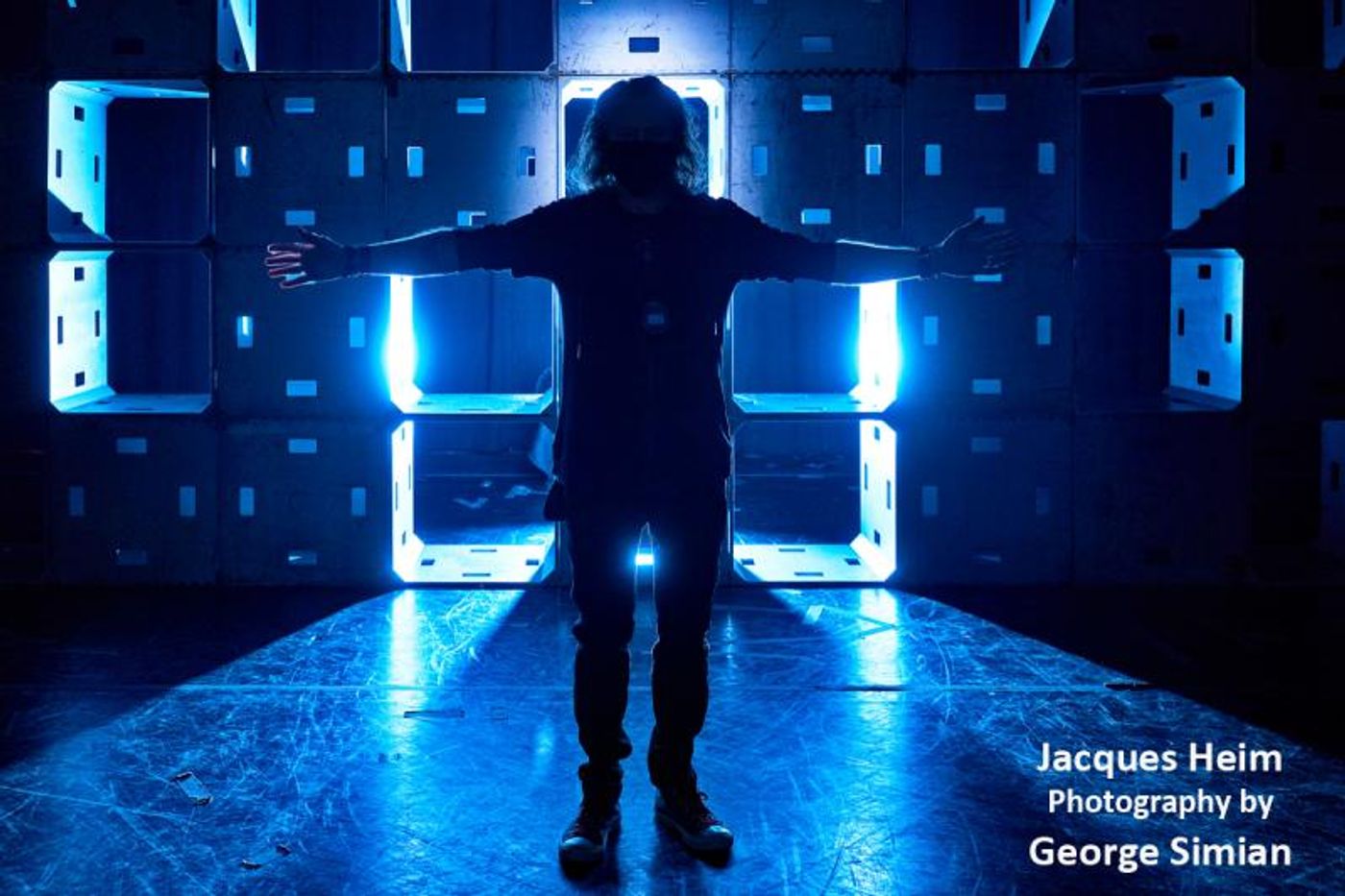 When I knew that I wanted to start a dance company, I knew that I did not want to call it Jacques Heim Dance Theatre. I thought it was a little pompous and pretentious to do that. I wanted to find a name that demonstrated my personality and captured the essence of the work. "Diavolo" means devil in Italian. Like the work, I am a little devilish, I am a rascal, I am complex and complicated, powerful and mysterious, and difficult to figure out. I like to push the boundaries and break the rules.
When I knew that I wanted to start a dance company, I knew that I did not want to call it Jacques Heim Dance Theatre. I thought it was a little pompous and pretentious to do that. I wanted to find a name that demonstrated my personality and captured the essence of the work. "Diavolo" means devil in Italian. Like the work, I am a little devilish, I am a rascal, I am complex and complicated, powerful and mysterious, and difficult to figure out. I like to push the boundaries and break the rules.
I asked my former rehearsal director, now project manager, Amy Tuley, and she describes her experience of first entering the company as not knowing what to expect, very intense, fast paced, hard to keep up, and wild. "Working with Jacques was nerve-racking, I was afraid to make a mistake, constantly questioned myself, I didn't think I was adapting quick enough to the demands of the work. And yes, I did send my therapy bill to him! Now, after working with Jacques and the company for eight years, I realize that his methods and the work itself made a lasting impact on the person I am today. I was pushed in a way I had never experienced, broken down and built back up into a stronger, more powerful version of myself that I didn't know was there. I gained tools that help me in all aspects of my life."
As the original choreographer of Cirque du Soleil's KÀ running at the MGM Grand in Las Vegas since 2004, have you periodically gone back to check on your choreography? Or had you passed that onto another choreographic creative?
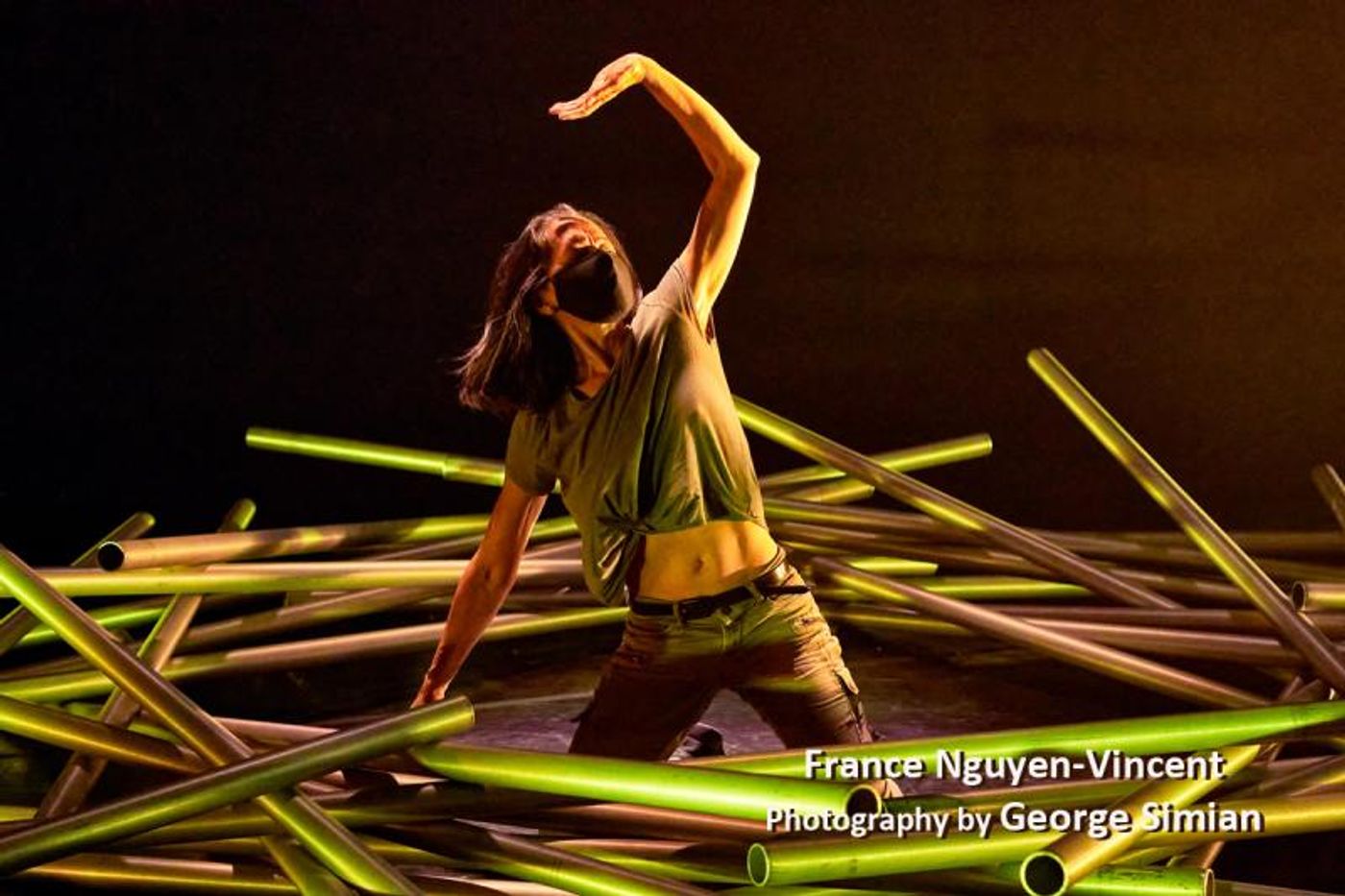 Cirque du Soleil always put in place a maintenance team composed of an artistic director, assistant artistic director, coaches and technical staff to take over the show when the original creative team completes their job. Knowing that KÀ will be performed for at least 10 years or more, you always want to tweak the show and make it better. You never want to stop working on a show. There is always room for improvement. It is necessary to be constantly working on the show, especially for the acrobats and actors who will be performing KÀ 10 times a week so they are always on their feet and not getting bored. I came back periodically to see how the show was progressing and give notes as needed. It was exciting to witness every time I was coming to Vegas to see how KÀ became even more special and beautiful.
Cirque du Soleil always put in place a maintenance team composed of an artistic director, assistant artistic director, coaches and technical staff to take over the show when the original creative team completes their job. Knowing that KÀ will be performed for at least 10 years or more, you always want to tweak the show and make it better. You never want to stop working on a show. There is always room for improvement. It is necessary to be constantly working on the show, especially for the acrobats and actors who will be performing KÀ 10 times a week so they are always on their feet and not getting bored. I came back periodically to see how the show was progressing and give notes as needed. It was exciting to witness every time I was coming to Vegas to see how KÀ became even more special and beautiful.
With a show as intricate in timing as KÀ, how much rehearsal time would you require for KÀ to be up and running again?
As the world was suddenly taken over by the pandemic and all shows at Cirque du Soleil had to stop, it definitely created some anxiety to all personnel. Their lives were put on hold, not knowing the future. There's a certain level of psychological impact that we have to monitor amongst the performers and the crew. It is not like they got a five-month vacation, so to ask them to come back and perform again will take not only a certain emotional and mental strength, but a physical one to get back to their top shape
During this time, they inevitably lost a bit a sense of teamwork, consistency, practice, technique, and fluidity. KÀ is like a pit crew for the Formula 1 race-car team. Everything is about endurance, execution, precision and timing. In order for the KÀ team to get back to their top performance, I believe they will need at least four weeks or more.
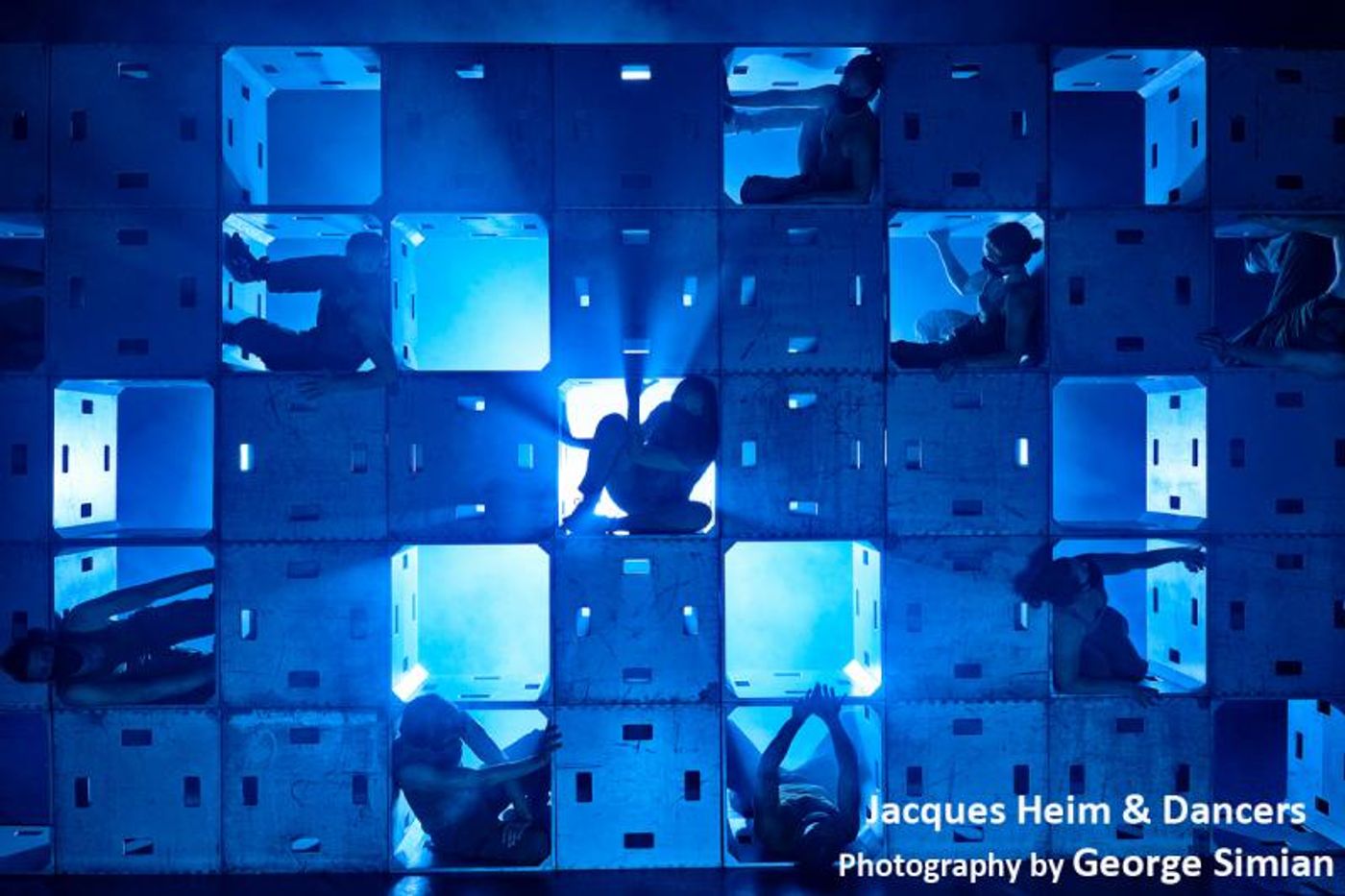 What do you hope to see for the near future of the Veterans Project and DIAVOLO?
What do you hope to see for the near future of the Veterans Project and DIAVOLO?
How do we know what tomorrow is? We have to find a way to move forward and imagine what will be our future and design our own destiny. DIAVOLO will shift from creating live shows to creating socially impactful dance films, live installations in our city, and online workshops. We have at least six other projects that we want to see realized in the next twelve months.
Unfortunately, there are always going to be wars. There are always going to be men and women from the military coming back to civilian life. We need to support them when they come back, and we have to be there for them. I hope to see for the near future of the Veterans Project, regular weekly and month-long programs, free for them, that veterans can sign up for at any time, especially the veterans that have just returned back from service and are trying to find a community that understands and embraces them. Like in a fitness gym where you can find different exercise courses, I would love to see DIAVOLO create different classes that focus on healing strategies such as self-efficacy, optimism, resiliency and hope.
It is always easy to behave normally when everything is going well. It is always hard and challenging when everything around us collapses. Nothing is random. We were given a challenge on how to focus on taking care of one another, taking care of our planet for a better future, how to not be so greedy, and how to be better humans. If 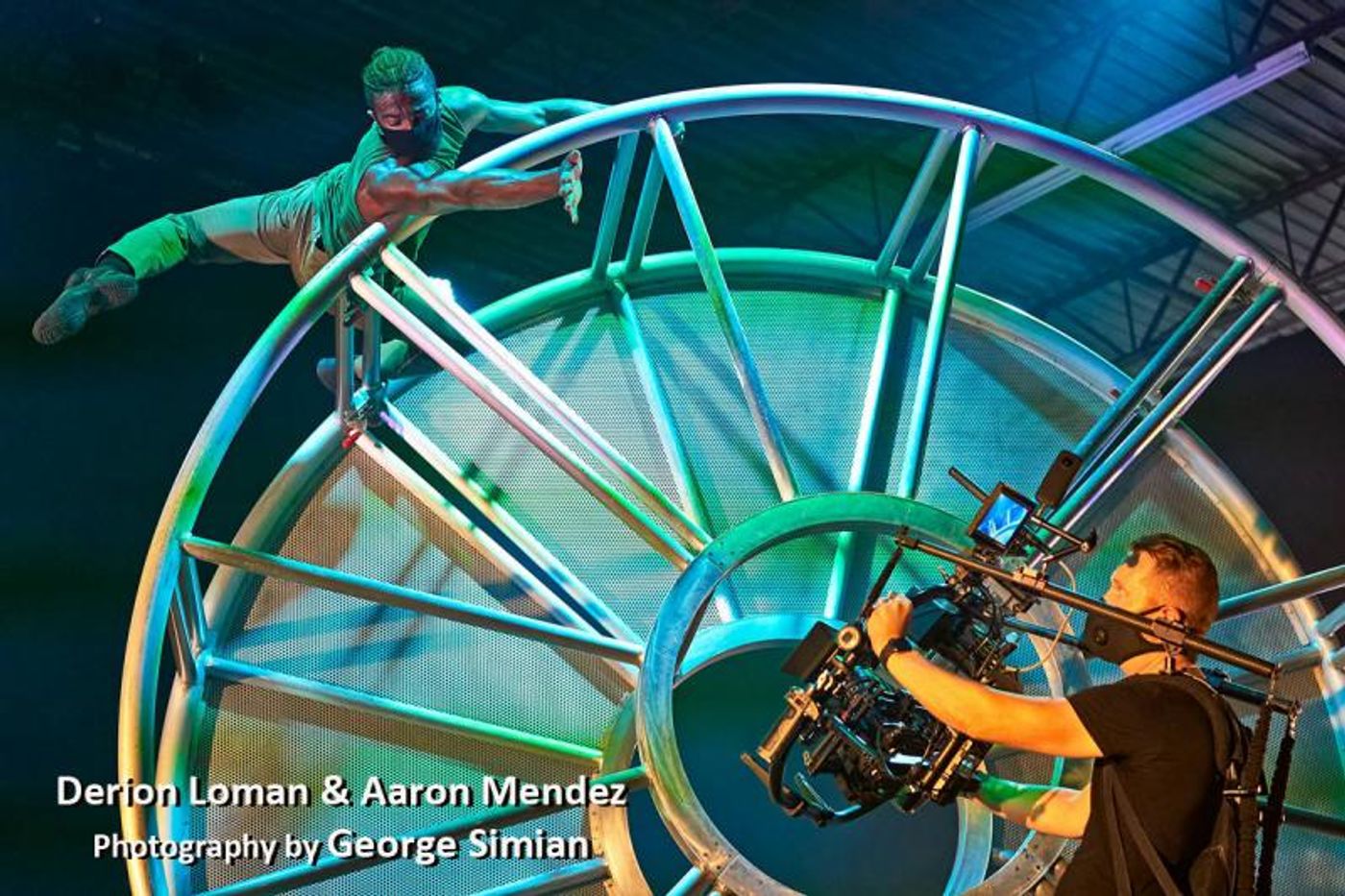 we don't, everything will end. It is up to us to define our destiny. It's up to us to make a change. As artists, we have a responsibility. Let's get back to work. Let's create and inspire our world. Godspeed.
we don't, everything will end. It is up to us to define our destiny. It's up to us to make a change. As artists, we have a responsibility. Let's get back to work. Let's create and inspire our world. Godspeed.
Thank you again, Jacques! I look forward to Zooming your latest choreographic creation THIS IS ME: LETTERS FROM THE FRONT LINES.
To view the premiere of July 31, 2020 at 4pm PST; log onto The Soraya Facebook page
Videos

